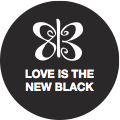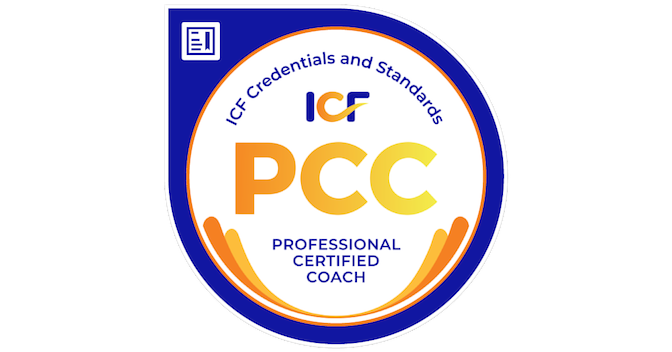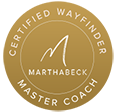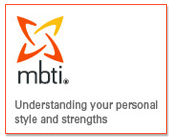Latest Blog Posts
 You look in your rear view mirror and see nothin’ but hood. There’s a driver on your bumper, wanting you to move faster. You’re annoyed, but get into it with him, deciding you’re not gonna budge. You’ll slow down, maybe tap your brake, but you’re not gonna change lanes. There’s no way you’re gonna cave…sound familiar?
You look in your rear view mirror and see nothin’ but hood. There’s a driver on your bumper, wanting you to move faster. You’re annoyed, but get into it with him, deciding you’re not gonna budge. You’ll slow down, maybe tap your brake, but you’re not gonna change lanes. There’s no way you’re gonna cave…sound familiar?
If you can relate, then you’re starting to get why some of your dreams haven’t come true. Yes, it sounds odd, but I respectfully request that you suspend your disbelief for just a few paragraphs and hang in there with me.
When you push too hard and ignore the signs that you’re doing so, you’re riding up the (ahem) butt of the very thing you want so much, and are likely to meet some resistance. Here are the signs that you’re a “dream tailgater”:
Your body speaks to you. Sometimes I walk too far, or stand for hours, or take on too many physical tasks in a short period of time. When that happens, my knees “speak” to me by forcing me to stop and lie down. While I want to keep going, my body’s got other ideas. What signals is your body giving you?
Animals speak to you. While teaching an Arabian horse ground manners, I was applying pressure on his nose (not directly). After a few minutes of this, he decided that I’d gotten too far up into his space and he took that beautiful nose and gave me a shove in the stomach. He didn’t hurt me, but gave me a clear signal that I was pushing him too hard, and too fast. (He also wanted a break from “class” and wanted to play!) How do the animals in your life show you you’re pushing too hard?
The people around you give you feedback. The political climate in Kenya coupled with a rainy season causing impassable roads has caused the postponement of a trip until June. I love an adventure, especially if it involves Africa, so I’m getting antsy for details. After emailing the trip’s organizer once too often, I got this reply: “What would you have to be responsible for if you dropped this tension?” A brilliant question, and a clear message to back off. My relentless need for info was alienating the organizer – not exactly helping me realize a lifelong dream of combining coaching and travel, and getting paid for it. Who’s been sending you subtle, or not so subtle, messages to back off?
So now you see it. You’re “dream tailgating.” Why? By focusing on the minutiae of the Kenya trip, I was trying to ignore the fact that I’m nervous about the role I’ve been asked to play in a very important effort. By pushing my body hard to get in shape, I’m ignoring the fact that maybe it’s not meant to go that far this time. By pushing that horse faster than he wanted to go, I stopped noticing how much I wanted to achieve “success” in our lesson. What part of your dream feels scary? How are you projecting that fear into the world around you?
How do you back off? First, take Dan Howard’s advice and do some intentional resting. Take a breath and say, in your mind or out loud, “I’m going to rest into my need for everything to work out quickly,” or “I’m resting into my anxiety.” Doing this creates a pause, sort of a “comma,” in your relentlessness.
Then, ask yourself: “What would I have to be responsible for if I dropped this tension? In other words, look for the real issue behind the urgency. Find the emotion so you can clean up the thoughts behind it. Result: peace, which is far more attractive (in every sense of the word) than fear.
If you’re marketing like crazy to find new clients and they’re not showing up, working to find the perfect new career and don’t have a clue what it is, soldiering on with your novel but the paragraphs won’t emerge, interviewing for jobs but not getting hired…back off! Set clear intentions for what you want, do your part, then take a deep breath and trust that the rest will happen.
 New clients always ask “How long is this going to take?” When I reply, “I don’t have a clue, but you do,” they get a little freaked out. So, I remind them about each of our roles in creating a life and career they love.
New clients always ask “How long is this going to take?” When I reply, “I don’t have a clue, but you do,” they get a little freaked out. So, I remind them about each of our roles in creating a life and career they love.
My role is to ask them questions to uncover their passions/skills/interests/values/beliefs, teach them to spot the limiting beliefs that are keeping them stuck, teach them how to clean up those thoughts, and if asked, make suggestions about steps they can take to keep up their momentum. (Basically, I work myself out of a job.) For some it’s a quick process, and for others it takes a bit longer, but the process is always the same.
Here’s your role in creating a life/career you love:
1. Ask questions. So often, we just accept what we’ve got without daring to imagine anything different. I respectfully submit that this is ridiculous and grownups have it all wrong. Go back to when you were a kid. What was the question that drove most adults crazy: “Why?“
- Why do you work in that soul-sucking job?
- Why do you keep dating the same kind of guy over and over again?
- Why does your stomach hurt every time you hang out with that friend?
- Why can’t you ask that guy on a date?
- Why can’t you go back to school?
- Why are you afraid to change?
When you examine the responses, you’ll likely uncover some deeply-held beliefs that no longer serve you. Once you know what they are, you can start punching holes in those theories.
2. Accept dead ends and failures as part of the experience. Moving out of a life that no longer serves you is often not linear or straightforward. If you’ve been anesthetized for a long time, you don’t just suddenly wake up and start running in the direction of your dreams. Experiment, knowing that you’re likely to screw up. That’s okay; it’s all information to help you get it better next time. Learning what doesn’t work is just as, if not more important than, learning what does.
3. Be willing to go back to the beginning, especially in your mind. We Westerners think we’ve pretty much got to have our lives figured out by the age of 25 or so. You know, go to school, get a job, work a bit, find a mate, find a home, have kids, and that’s that. We become experts at something or things, and we’re done.
In Eastern philosophy, there’s a concept called “I don’t know mind,” the willingness to be a beginner again. And again. And again. If we stopped trying to be such know-it-alls and allowed ourselves to be beginners who are curious and eager to learn, we might surprise ourselves with the new things we’ll master.
4. Be persistent. Don’t give up when you hit your first “you’re overqualified” or “you’ve got no experience” or “why would you want to do this at your age?” Reinvention isn’t for the faint of heart, but when you finally “get there,” it’s a damned good feeling. Think of the rejections and failures as a test of how badly you want something.
5. Accept the mystery/cosmic help. When you get serious about making changes, opportunities start to present themselves:
- A woman at a nursing home where you’re visiting your relative tells you about her brother the governor, to whom you’ve been trying to send your resume
- An article filled with critical info appears in a publication you normally don’t read but felt compelled to buy
- A “We Buy Gold” event occurs at a local hotel, where you sell your unwanted jewelry and make money to cover the cost of a few voiceover lessons
- A friend who knows lots of people with horses
- Just days before your three month sabbatical from work, during which you’re going to Paris to determine if you want to live there, a friend calls you about an apartment-sitting opportunity in, of course, Paris
When you start to put in the time, asking questions, being persistent, dusting yourself off when you stumble and fall, and getting clearer about what you’d like to have in your life, all sorts of things get put into your path to help you achieve your goals. Those bullets above? I didn’t make ’em up. Every single one happened. Just ask my clients.
I stumbled upon this Native American saying somewhere recently, and it’s stuck with me:
“No tree has branches so foolish as to fight among themselves.”

Imagine if…
- we each thought of ourselves as a branch on the tree of life? How would we act if we remembered that we are an interconnected system, dependent upon each other in order to thrive? What would change if we lived our lives remembering this?
- we each remembered that what others think of us is none of our business, but what we think of ourselves IS. I believe it matters a great deal to the world that we treat ourselves with grace and respect. Once we do that, it’s far easier to apply the Golden Rule, don’t you think?
- we realized that, as we find our right lives and careers, everything we think, say and do has the ability to create our world as we go. What kind of world do you want to live in? What are you doing to create it?
- we stopped fighting amongst ourselves. And amongst our “selves,” the different versions of the self we project to the world. When was the last time we cut ourselves, or someone else, some slack? What if we took the “tree” metaphor to heart and learned not to be so impatient with the part of us that’s mean, uninformed, lazy, scared, insecure, or jealous and treated those “selves” with patience, respect and grace?
Imagine that.
This long post, and the long story in it, was a long time in the making. It started with an interest that turned into a curiosity that turned into a passion.
 I’ve always been fascinated with horses. I’m not sure why. I’ve only ridden a horse twice, and both experiences were the typical “put the kid on a half-dead horse who slooooowly walks around in a circle” thing. I read the “Misty of Chincoteague” series of books when I was little and I dreamed of having a horse, but that’s about as far as it ever got. Horses just weren’t in the cards for me, but there was something about them that always made me sit up and take notice.
I’ve always been fascinated with horses. I’m not sure why. I’ve only ridden a horse twice, and both experiences were the typical “put the kid on a half-dead horse who slooooowly walks around in a circle” thing. I read the “Misty of Chincoteague” series of books when I was little and I dreamed of having a horse, but that’s about as far as it ever got. Horses just weren’t in the cards for me, but there was something about them that always made me sit up and take notice.
Years later (in 2008, to be exact), I found myself in a round pen with master coach Koelle Simpson and a horse. As part of my master coach certification, I was to demonstrate leadership in a very real, very present moment with a 1,000 lb. animal. It didn’t go all that well.
Six weeks later, I found myself in Montana with Koelle and a bunch of friends, and this time the ante was upped, as I was supposed to single-handedly get 10 loose horses in a large arena to follow me. Yeah, right. (I wrote about that experience here.)
And six weeks after that, I’m helping Koelle with a workshop, acting as the “coach on the side,” helping participants deal with the many thoughts that come up when they’re faced with the experience of using their leadership skills with a horse for the first time. Then we hit Texas, and then Virginia in 2009, where we met Erika Isler, who wrote this about her experience.
 What didn’t make it into the article, though, was what happened for me on the last day of that Virginia workshop. With time left over, my friend Boyd and I tried a herding exercise we’d bungled a bit in Montana a year before. There are no photos of the best parts, so I’ll just say that we summoned up our leadership mojo and had those horses dancin’! They did figure eights around barrels, twice. Not bad for a girl who, during her first experience, couldn’t summon up enough oomph to invite her horse to just take a walk. (That’s the two of us, high-fivin’ in a photo taken by our friend Kelly Eide.)
What didn’t make it into the article, though, was what happened for me on the last day of that Virginia workshop. With time left over, my friend Boyd and I tried a herding exercise we’d bungled a bit in Montana a year before. There are no photos of the best parts, so I’ll just say that we summoned up our leadership mojo and had those horses dancin’! They did figure eights around barrels, twice. Not bad for a girl who, during her first experience, couldn’t summon up enough oomph to invite her horse to just take a walk. (That’s the two of us, high-fivin’ in a photo taken by our friend Kelly Eide.)
Now, with five equine workshops under my belt, I’m totally hooked on horses. I want to learn everything I can about them, and I’ve started by taking Koelle’s Equus Coach training program. Last weekend, I was at a ranch in AZ, learning how to take a horse’s temperature (and it ain’t by placing a thermometer under his tongue!), weigh him, take his pulse, and determine his age, too. I’m contacting stables and will soon be mucking out stalls and observing horses at play, and taking classes about things like the equine digestive tract.
Eventually, I’ll be coaching people through “join-ups” and other activities designed to help people summon and channel their leadership energy and learn the importance of non-verbal communication in a very cool way.
A dream come true. It only took about 40 years, but it’s happening. And that’s the important thing. My passion for horses wasn’t nourished for a long time but now that I’m focused, it’s the best feeling ever. I’m not sure exactly how this will all play out but I’m having too much fun to question it or to stop.
What’s your passion? What lit you up when you were eight years old? Despite the fact that we outgrow a lot of things, it never hurts to go back and look at who we were then. Amazingly, a lot of things about us stay pretty consistent, like my love of cowboy boots and horses, and my passion for helping others. Think about what got you excited then, and what excites you now. Then, even if it’s scary or crazy, find a way to articulate that feeling to someone you trust. It’s funny, the things that happen when you start to air those passions…
If it takes you 40 years to re-ignite your dream, so what! If I can do it, so can you.
 February had a lot of us thinking about love. Some of it was that “hearts and flowers” stuff, prompted by the serious marketing of card and candy manufacturers. I’m not talking about romance, though. I’m talking about the love that happens in relationships – grown-up, real relationships.
February had a lot of us thinking about love. Some of it was that “hearts and flowers” stuff, prompted by the serious marketing of card and candy manufacturers. I’m not talking about romance, though. I’m talking about the love that happens in relationships – grown-up, real relationships.
Starting with the relationship you have with yourself.
Because of my years in HR, I’m really good at sizing people up quickly. I can spot a phony a mile away, and one of the easiest phonies to spot is the person who’s faking self-love. You know, the person who’s trying to convince you to like them while they’re really not liking themselves very much. It’s that graspy, clingy sort of vibe that comes off a person. I don’t know about you, but that vibe doesn’t attract me; it repels me.
If you’re not in love with yourself, others won’t be, either.
I’m not talking about obnoxious, conceited, “I’m the best damned thing that’s happened to this planet” stuff. Ego doesn’t help here. I’m talkin’ about BEING love.
Yes, you heard me. BE love.
First, treat yourself well. You can take bubble baths and long walks in the woods, if that’s your thing. But I’m talking about self-respect. About honoring your Self. About being clear about what you need and want, and about what feels good and what doesn’t. Knowing for sure, just in this moment, what feels right to your body, heart and soul.
Then, be love. In every situation, think about how you can create it – how you can show it, not seek it. What it would feel like to do the most love-filled and compassionate thing in that moment.
Why does this matter?
Whether you’re looking for a new job or a mate, starting a business or trying to figure out what’s next in your life, a sure-fire way to move the process along is to listen to your heart. That thumping organ inside your chest is a sophisticated instrument with more “pull” than we previously knew. Turns out that the heart sends more info to the brain than the brain does to the heart.
I could get all scientific on you here, but I’d make an idiot of myself. Neurocardiology is a pretty cool field and the folks at Heart Math are doing lots of research about heart coherence. Check them out if you need data to support what I’m saying, and I’ll stick to talking about what my gut knows: when we move through the world as loving beings, when we’re clear and honest and filled with love and appreciation in our hearts, we’re awfully compelling. When we’re fearful and negative, worried or combative, we’re not.
Pretty simple. You decide.
Here’s my story and I’m stickin’ to it: Love always wins.
 You may recall that I’ve decided my 2011 Word of the Year is “Peace.” Each month, I’m focusing on one aspect of the Life Wheel (see my home page for a free download), diving deeply into the topic at hand to learn more, then apply what I learn to create more peace in my life and the lives of others. January’s focus was on finances.
You may recall that I’ve decided my 2011 Word of the Year is “Peace.” Each month, I’m focusing on one aspect of the Life Wheel (see my home page for a free download), diving deeply into the topic at hand to learn more, then apply what I learn to create more peace in my life and the lives of others. January’s focus was on finances.
I asked a lot of questions, and I stirred up some stuff.
In my Peaceful Finances teleclass, I asked particpants to tell me about their money philosophy. Their answers ranged from “I love money and money loves me” to “There’s never enough.” Not surprising. What was surprising for participants, though, was the fact that every one of them admitted they’d never thought about how they’d learned about money. When they thought about the responses to the questions below, a lot of light bulbs went off.
What money messages did you receive?
What did your mom tell you about money? How did your dad feel about money? Can you recall your first memory of money? What do you believe about people who have money? What did money cause to happen (or not happen) in your family?
What do you believe about money now?
I work with clients across the financial spectrum – what we’d call “rich,” and what we’d call “poor” – and the beliefs they’ve got about money might surprise you. Wealthy or not, most of my clients’ relationship with money is one of fear. I think they’re a good representation of what’s going on in the minds of most Americans. Our advertising culture often encourages fear (of not measuring up, of not fitting in, etc.) in order to create consumption.
If we view things through a “lens” of scarcity, everything we think, say or do is about overcoming a sense of lack.
Lynne Twist, author of The Soul of Money, talks about the “myths of scarcity,” and asks us to notice how often our language reflects lack – “I didn’t get enough sleep,” “there aren’t enough hours in the day,” etc. If you’re focused on lack, you’re likely to experience more of it, drawing it toward yourself in a myriad of ways.
How’s that workin’ for you? Not so much? Then create the habit of respecting money.
You may think you respect money now, but if you’re feeling anything other than peaceful about it, there’s more work to be done. In her book, Overcoming Underearning ™, Barbara Stanny suggests these actions:
- observe your attitudes, beliefs, thoughts and feelings and choices about money
- determine what you need to let go of
- to educate yourself, read something about money
- be direct and ask for what you want
- spend less than you earn
- write down your intentions about money
- set up a debt repayment plan
- get clarity by writing down everything you spend
- write about money in your journal
- find a financial advisor
- get an accountability buddy and be honest with them about your spending and saving
- act as if you’re worth it (deserving of money)
- think bigger
- assemble a support community
- stop using credit cards and pay for everything with cash for one week, one month, or one year
There are probably loads more that we could come up with, but I think you get the idea. Like any desired positive change, the first step toward peaceful finances is awareness, then honesty about your current situation, followed by small steps taken regularly to create new habits.
If you’d like to join in the conversation about peaceful finances, hop onto the Peace by Design Facebook page and click on Discussions. I’d love to hear from you!
 A few days ago, my mother celebrated the 55th anniversary of her arrival here in the U.S. As did so many others, she left Europe to find a better life for herself At the age of 19, unable to speak English and with no money to speak of, she arrived by ship in New York Harbor.
A few days ago, my mother celebrated the 55th anniversary of her arrival here in the U.S. As did so many others, she left Europe to find a better life for herself At the age of 19, unable to speak English and with no money to speak of, she arrived by ship in New York Harbor.
She has no memory of the Statue of Liberty because the ship arrived at night in heavy fog, but she does remember leaning on the ship’s rail, wondering what all the twinkly lights were. The next morning, she couldn’t get over the New York skyline, the height and sheer number of the skyscrapers, and the fact that everyone in America seemed to drive a yellow car (she’d never seen taxis before).
An aunt and uncle took her in, helped her find some new clothes, and helped her find a waitressing job. Learning English from her customers in the diner and by watching television, she slowly saved her money and built her new life.
For all the remaining years of their lives, my mother helped that aunt and uncle by buying and delivering groceries, cleaning their home when they couldn’t do it any longer, finding caretakers to look after them…whatever was needed. They’d given her a chance at a new start in life, and she was determined to repay that kindness in any way she could.
When I remember that story, told to me many times over the years, I think of the lessons in there for me:
- If I’m feeling sorry for myself, thinking it’s too hard, too scary, or too big a dream, I just remember Mom at 19.
- If I can find a way to give someone a leg up and help them find their way, I’m going to do it.
- If there’s a way to thank the people who came before and paved the way to make my life easier, I will do it.
Thanks, Mom. I’m glad you dreamt big.
 During the Martha Beck life coach training process, coach “cadets” are told that they should “be willing to suck at it,” the premise being that the only way to get better at something is to start, screw up, stand up, do it again, and keep learning from your mistakes.
During the Martha Beck life coach training process, coach “cadets” are told that they should “be willing to suck at it,” the premise being that the only way to get better at something is to start, screw up, stand up, do it again, and keep learning from your mistakes.
My fellow master coach, Meadow DeVor, has written a great post about what she’s learned from her mistakes. 10 Things I’ve Learned by @#$%ing Up is a helluva read – rock on, Meadow!
 I’m notoriously bad when it comes to cooking starches. I find it really hard to believe that rice will increase in size so much that the little bit I put into the water will be enough to feed me. Same goes for pasta. I’m constantly throwing in “just a little bit more to be safe” and then ending up with a huge bowl of the stuff once it’s cooked.
I’m notoriously bad when it comes to cooking starches. I find it really hard to believe that rice will increase in size so much that the little bit I put into the water will be enough to feed me. Same goes for pasta. I’m constantly throwing in “just a little bit more to be safe” and then ending up with a huge bowl of the stuff once it’s cooked.
Last night, during the Peaceful Finances teleclass, I was telling the group about one of Lynne Twist’s Toxic Myths of Scarcity: More is better. If we believe this myth, we run around accumulating more than we’ll ever need – more shoes, bags, paper, books, money, etc. We’re driven by consumption and greed, not stopping to enjoy what we already have.
And then we’re complaining about the clutter in our lives, unable to find peace. When we remove the stuff, or better yet, stop bringing in anything we don’t absolutely need, we feel better.
It’s sometimes hard, though, to trust that there will be enough. That little bit of rice will really make enough to feed me? That pasta’s going to fill my belly? Not working in a corporate environment with a steady paycheck and benefits is still going to allow me to have a good life?
If you’re afraid to change from the “more is better” mindset, start slowly. Instead of half a box of pasta, toss in a third. You’ll still have leftovers, but less than you did before. Then, think of another area in which you could do with just a little less and see how it feels.
For me, beginning to trust that there will always be enough has been an ongoing journey. I’m willing to keep “less-ifying” because it feels freer than being overstuffed – with food, with things, and with weight. “Less is more” feels a lot more peaceful to me than “More is better,” so I’m gonna keep going.
Maybe someday soon there won’t be any leftovers when I cook pasta.
 I’m happy to have been included in an article called “Taking the First Step: Overcoming Excuses to Get Where You Want to Be” in Healthy Life CT magazine.
I’m happy to have been included in an article called “Taking the First Step: Overcoming Excuses to Get Where You Want to Be” in Healthy Life CT magazine.



